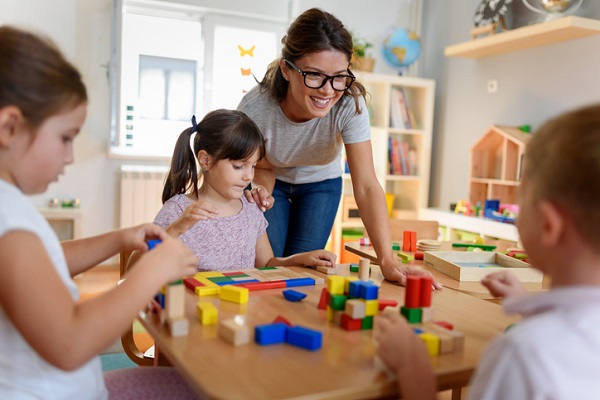Communication is more than just talking, writing, and reading. Posture, eye contact, body language, and facial expressions all contribute to how we connect and what we communicate with one another. In every relationship communication skills matter, but even more so when you work with young children who are growing, changing, and learning from your interactions with them and others.
Working as an early childcare assistant also means communicating with parents or caregivers as well as colleagues. Skilled communication is necessary to building trust in all cases. It is also encouraging to see how modeling good communication for children will help them pick up skills for their futures.
Children Will Notice Good Communication
There are many different ways you must be able to communicate when interacting with children of different ages, their family members, and your colleagues. As you pursue early childcare assistant careers it is likely that you will find that even when you are not talking directly to children, children will see, hear, and feel how you and other adults communicate.
For example, when you interact with parents or caregivers at the beginning or end of the day, a child will likely observe the way you speak and your gestures. Taking care to communicate well with parents will show the children you work with that good communication is not only reserved for them, it is for everybody. Seeing you communicate well with everyone has the potential to influence them to do the same.
Good Communication Shows You Care
Beyond modeling behavior for children to follow, thoughtful communication is an act of care. Asking questions, listening and adjusting your interactions to what makes a child comfortable will show them that their wellbeing is important to you.

When you make space to ask a child about their interests, for example, your posture, eye contact and gestures will indicate to them that you genuinely want to know what they have to say. Their confidence in your care will also help them build good communication relationships with peers and future caregivers or teachers. After an early childcare assistant diploma you will experience the benefits of good communication as a mode of care.
Communication Skills in Early Childcare Assistant Training Help with Teamwork
As an assistant it will also be necessary to know when to ask for help from a colleague, parent, or caregiver so that you don’t get stuck alone in a sticky situation. This kind of teamwork is likely to be a part of your early childcare assistant training as well as the career that follows it.
When you are able to communicate that you need help, it creates a bond between you and your colleagues wherein you are able to rely on one another. Similarly, good communication skills will help you notice when a colleague may want your help.
Just like many other skills, communication takes practice and patience, but it will pay off when you bond with your co-workers, develop relationships with children’s parents or caregivers, and see children practice good communication. While early childcare assistants face all kinds of different situations throughout their careers, communication skills will help you to excel.
Interested in getting an early childcare assistant diploma?
Learn more about the program available at Canadian Business College!
